The 81-year-old Secretary of Commerce Wilbur Ross, in Greece on an official trip last September, was awakened from his early-morning slumber by a call from the then-White House chief of staff. It was about the President’s baffling claim on Twitter — made the previous Sunday — that Hurricane Dorian, bound for the east coast, was actually going to hit Alabama.
Local National Weather Service meteorologists in Alabama had contradicted the President that same day, saying in a tweet that the state faced no danger from the hurricane. Now, on Thursday, Mick Mulvaney wanted an explanation from Ross.
Mulvaney’s call to Ross was just one behind-the-scenes detail of many found in a report released Thursday by the Department of Commerce inspector general detailing the infamous affair now known as SharpieGate. The report includes a timeline of how it all went down:

In an email to Ross a few hours after his call — after the Commerce secretary had fallen back asleep — Mulvaney was blunt: “As it currently stands, it appears as if NWS intentionally contradicted the president. And we need to know why. He wants either a correction or an explanation or both.”
The messages from Mulvaney to Ross just happened to come a day after Trump displayed a Sharpied-up version of a hurricane forecast in the Oval Office.
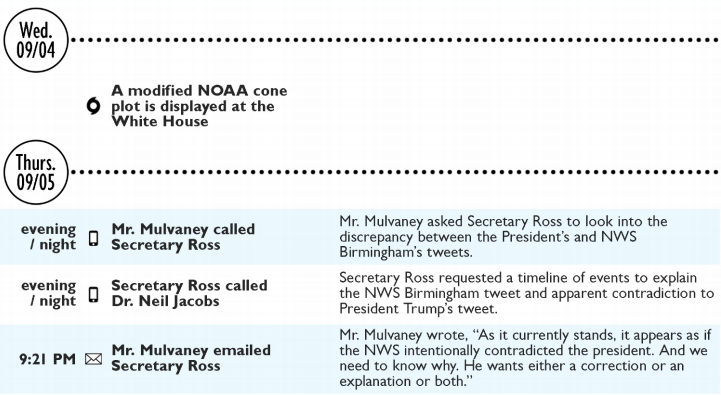
And the chief of staff’s instructions set off a frantic day of meetings to decide what to do about the offending tweet from the weather service.
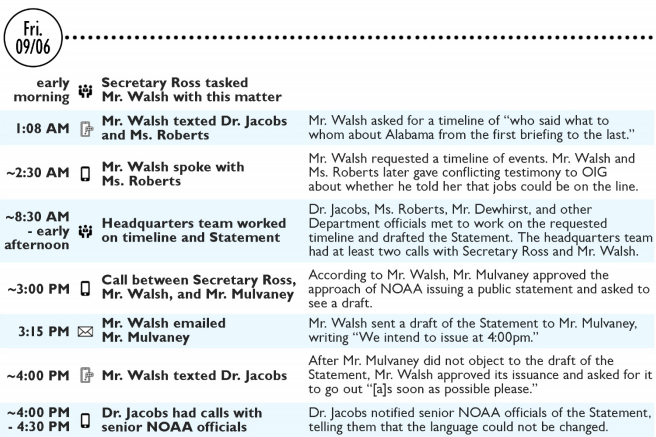
Finally, the National Oceanic and Atmospheric Administration released an unsigned statement backing Trump and criticizing the local meteorologists.
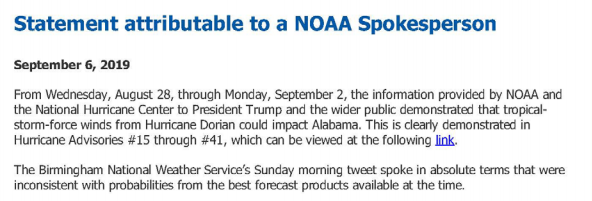
The missive sent morale at NOAA plummeting. Career scientists, a union official said, felt like they’d been thrown “under the bus.”
In Thursday’s report, the Commerce Department inspector general’s office concluded that the statement — released five days after the tweets in question — didn’t advance NOAA’s interests, and discounted participation from NOAA staff.
According to the timeline of events in the report, that statement came together notably without input from career meteorologists at NOAA or the National Weather Service.
Instead, Ross’s chief of staff and acting general counsel, Michael Walsh, worked with then-acting deputy general counsel David Dewhirst and NOAA’s acting chief Neil Jacobs — who didn’t include other important officials at the organization.
“I really viewed this as sort of a DOC led process,” Jacobs told the inspector general’s office, referring to the Department of Commerce. “That wasn’t NOAA’s idea.”
The statement backed Trump even though a forecast just before his tweet showed only a slight chance that Alabama would experience tropical-storm-force winds. Or, as Jacobs put it in a text message to Walsh, “just a windy day.”
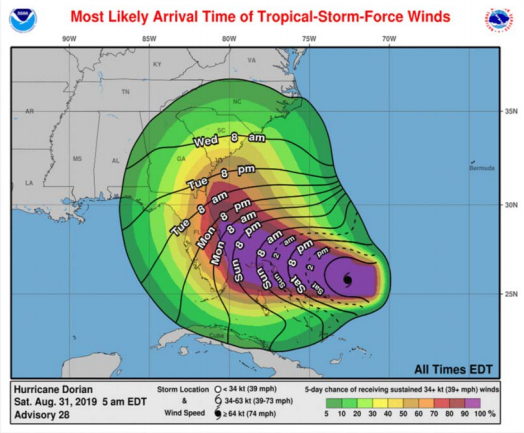
Career staff at NWS Birmingham — whose tweet had thrown the Commerce Department and White House into damage-control mode — told investigators they weren’t even aware of Trump’s tweet when they sent their own: They were responding to questions from locals.
But, several days later when their bosses hung them out to dry, they felt the heat. “I saw the statement and kind of broke down,” one Birmingham employee recalled.
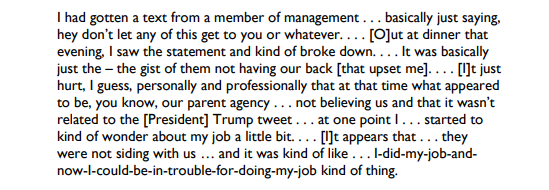
Interestingly, the inspector general’s report was delayed for several days because staff from Ross’ office were “actively preventing” its release with vague objections about privileged information, Inspector General Peggy E. Gustafson alleged in a letter last week. The published report Wednesday barely had any redactions.
In response to the report, an attorney for the Commerce Department wrote that “the absence of any formal recommendation shows that there were no major flaws in the Department’s handling of this situation.” Walsh, who is awaiting Senate confirmation to become the department’s official general counsel, said the report’s conclusions were “unsupported by any of the evidence or factual findings that the report itself lays out.”
But the bottom line, per the report, is a simple one: “It was unnecessary to correct the accuracy of a 5-day-old tweet.”


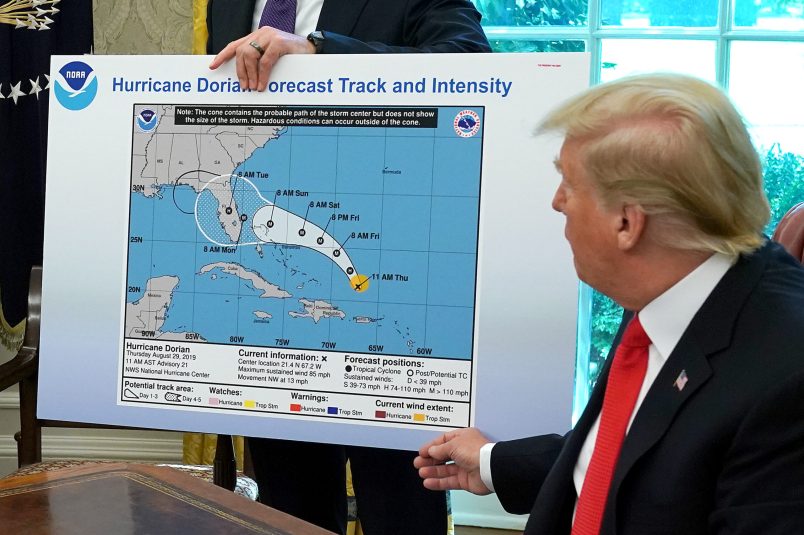




Trump Enablers:
Just pile them with so much trumpian lies and they will soon forget the truth!
Trump: KAG (Keep America Great)
Truth: KAG = Killing American Geriatrics
Trump: MAGA (Make American Great Again)
Truth: MAGA = Morons Are Governing America
Trump: America First
Truth: Trump/Putin First
Truth be told…Trumpism and Trumpian LIES are deadly!
Addendum:
How to cognitive!
https://www.youtube.com/watch?v=omTd0bvQT_MThe first incident in which we learned that the Dumpsterfire’s ego is more important than public safety. The country should have put a stop to his nonsense back then.
How many ways can you spell D O O F U S ? This is a clown car shit show.
Shorter version: Saving Liar Trump.
Nice to know that the entire machinery of the federal government is being utilized to soothe a reckless President’s fragile ego, instead of serving the American people, but, by now, we’ve become all too familiar with this story.
He killed thousands in Puerto Rico.